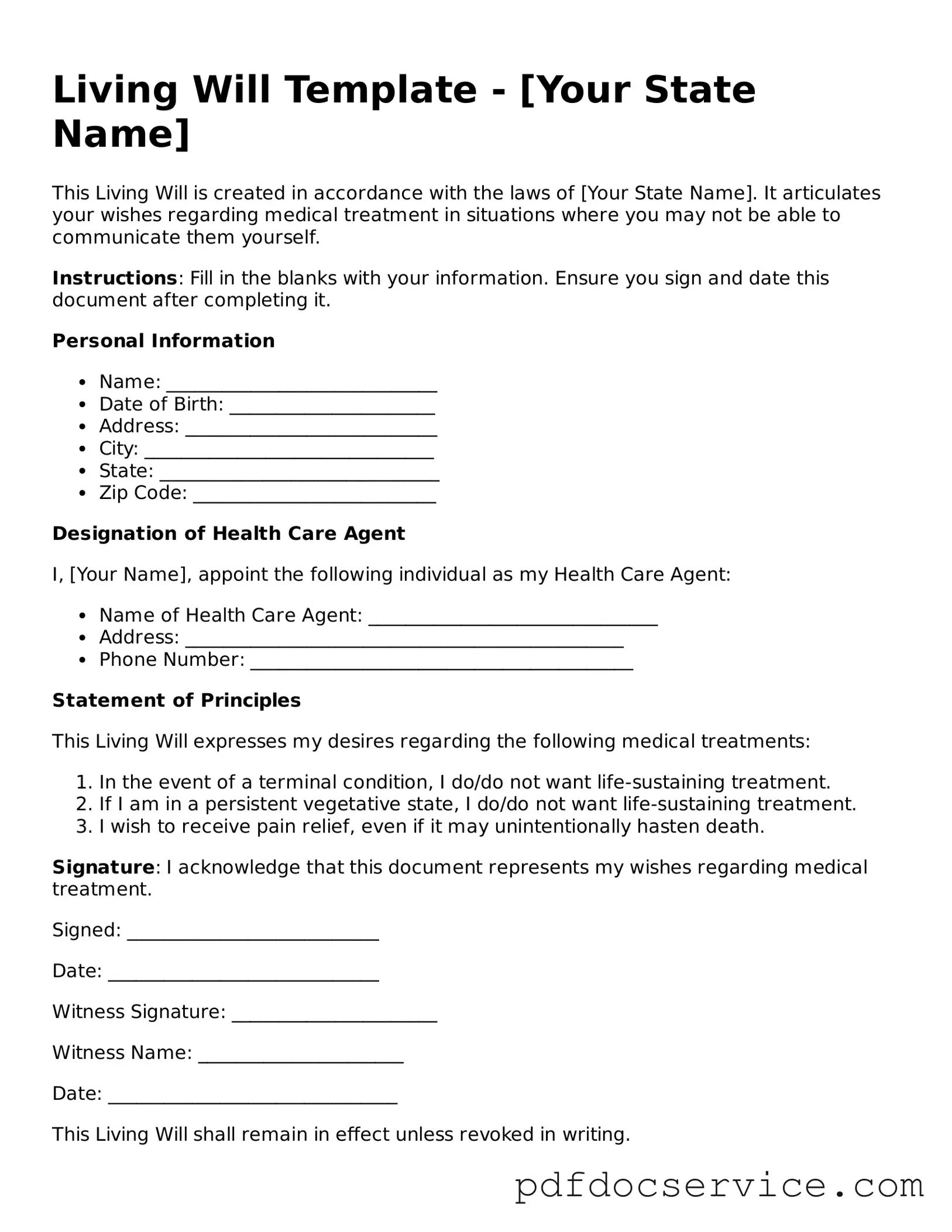Blank Living Will Form
A Living Will is a legal document that outlines an individual's preferences regarding medical treatment in the event they become unable to communicate their wishes. This form plays a crucial role in ensuring that healthcare providers and loved ones understand a person's desires about life-sustaining measures. By completing a Living Will, individuals can take control of their healthcare decisions, even when they cannot speak for themselves.
Open Living Will Editor

Blank Living Will Form
Open Living Will Editor

Open Living Will Editor
or
Get Living Will PDF
Finish the form now and be done
Finish Living Will online using simple edit, save, and download steps.